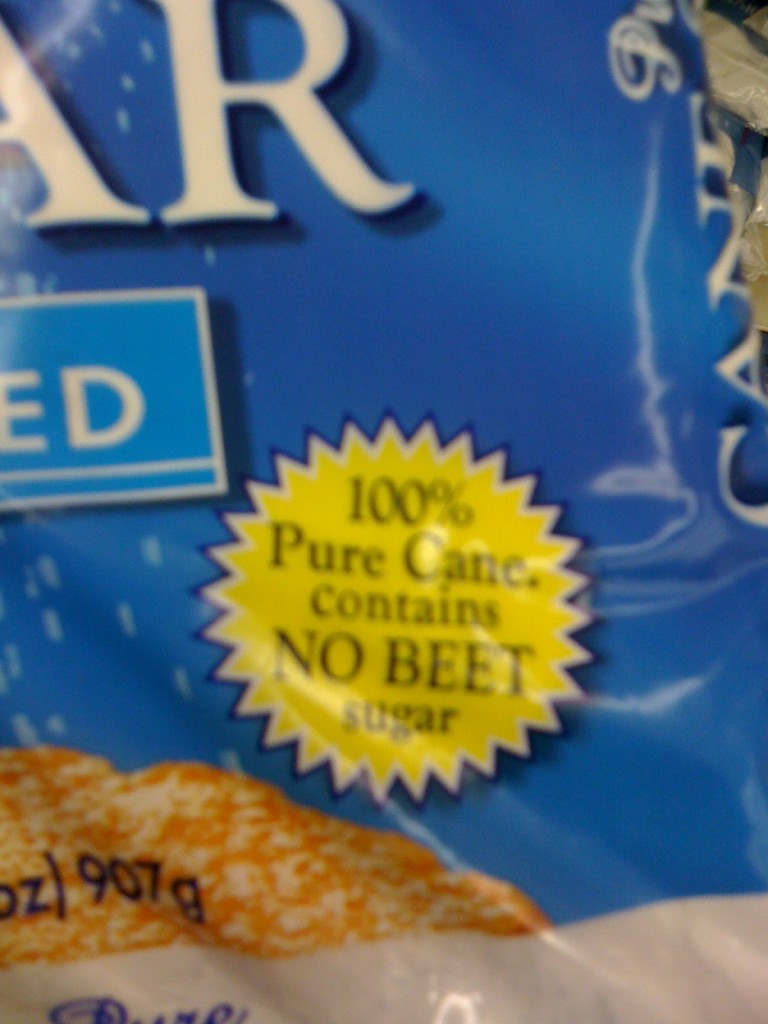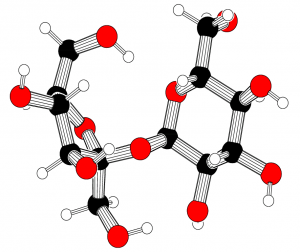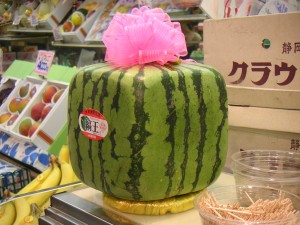Earlier today I was sent out, through rain and fallen snow, to visit the local grocery store for various last minute cookie ingredients, including confectioner’s sugar. The only brand I could find had this prominent label:

Powdered sugar at the local grocery store
First of all I’ve never understood why people care wether a given cup of sugar come from sugar cane or sugar beets. Regardless of source, white sugar is at least 99.9 percent pure* sucrose. Sucrose is a single molecule with an exact structure that is the same regardless of source. (Like salt crystals, or de-ionized water it’s a pure substance, only one step up from elements like carbon and oxygen).

A model of the sucrose molecule. All sucrose, regardless of source, will have this same structure. If it doesn't, it's not sucrose. Image from wikimedia and distributed under the creative commons 3.0 share alike license.
That said, I’ve never before seen a label on a bag of sugar that proudly announced what it is NOT (beet sugar). I don’t know if this is a reaction to the current publicity about herbicide resistant sugar beets, or the old feelings about the, non-existent, differences between sugars refined from different plant sources taken to their logical extreme, but either way, in this christmas of all christmases, is not the time to be kicking beet farmers when they are down. (more…)







